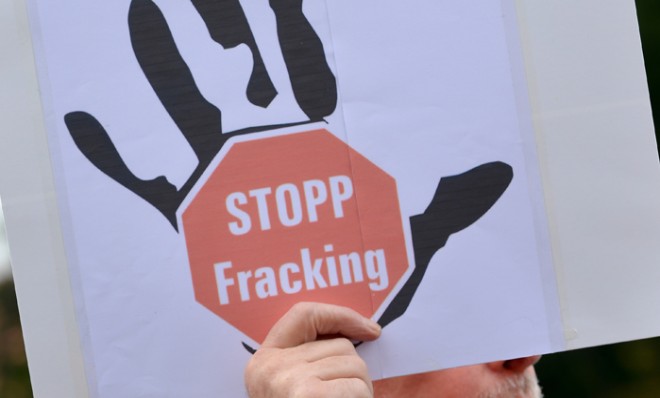The new fracking study environmentalists don't want you to see
Hint: The drilling procedure may be less dirty than originally believed

A free daily email with the biggest news stories of the day – and the best features from TheWeek.com
You are now subscribed
Your newsletter sign-up was successful
This week, the University of Texas released a study showing that fracking releases much less methane into the atmosphere than previously thought.
Sponsored by the Environmental Defense Fund and nine oil companies, the study analyzed more than 489 natural gas wells, and estimated that shale-gas drilling operations leak more than a million tons of methane annually. That's a lot, but "probably less than the Environmental Protection Agency estimated in 2011," says The New York Times.
Specifically, the study suggested that containment measures — technologies for trapping leaks that will soon be required by the EPA — "captured 99 percent of methane that escaped from new wells being prepared for production," says the Times. The EPA's rules don't go into effect until 2015, but some wells have already started capturing leaks.
The Week
Escape your echo chamber. Get the facts behind the news, plus analysis from multiple perspectives.

Sign up for The Week's Free Newsletters
From our morning news briefing to a weekly Good News Newsletter, get the best of The Week delivered directly to your inbox.
From our morning news briefing to a weekly Good News Newsletter, get the best of The Week delivered directly to your inbox.
When released into the air unburned, methane is a powerful greenhouse gas: Pound for pound, it's 20 times more potent than carbon dioxide over a 100-year period, says the EPA. The threat of its release is one reason why so much controversy surrounds fracking, which involves blasting underground rock formations with water, sand, and chemicals to access natural gas.
"Keeping it underground while drilling for it is supremely important," says Bloomberg Businessweek. "This study suggests that this is possible."
So, this is good news, right?
It depends whom you ask. "The American Petroleum Institute hailed the study's conclusions," says the Times, "saying in a statement that its own efforts to reduce methane emissions 'are paying off.'"
A free daily email with the biggest news stories of the day – and the best features from TheWeek.com
The Environmental Defense Fund's spokesman, Eric Pooley, was more tentative. "It's not a magic bullet," he tells Bloomberg Businessweek. "It doesn't get us all the way we want to go, but it is good news."
Phil Radford of Greenpeace, however, says the study is misleading. "At best this study will be considered an interesting outlier that calls for further research," he says in EcoWatch, noting that the 500 wells in the study compose a a small fraction of the 25,000 or more now active in the U.S. "At worst, it will be used as PR by the natural gas industry to promote their pollution." He goes on:
The fossil fuel industry desperately wants to get us hooked to its latest product before we have time to adequately study it. They know that renewable energy technology is here now and ready to be implemented, but they're hoping consumers won't notice, or have the courage to make the switch to the real Energy Revolution that can carry us fully into the future. [EcoWatch]
Others worry about the fact that the study received funding from big oil. The Environmental Defense Fund states, "Nine natural gas companies, out of thousands of producers in the U.S., volunteered for this study," which "collected data that characterized the practices at particular sites operated by the participating companies, not industry at large."
Bill Chameides, the Dean of Duke University's Nicholas School of the Environment, explains in The Huffington Post why that may be cause for concern.
It could be that this subset of companies — the ones willing to have their sites measured — are the ones that are most careful to limit leakage and thus are not representative of the industry. [The Huffington Post]
Meanwhile, the Times says most experts think the "research and the reputations of the researchers appear solid."
"Previous studies that have gotten a lot of attention have had red flags jumping out all over them. This one didn't," Michael A. Levi, the director of the program on energy security and climate change at the Council on Foreign Relations, tells the paper.
Carmel Lobello is the business editor at TheWeek.com. Previously, she was an editor at DeathandTaxesMag.com.